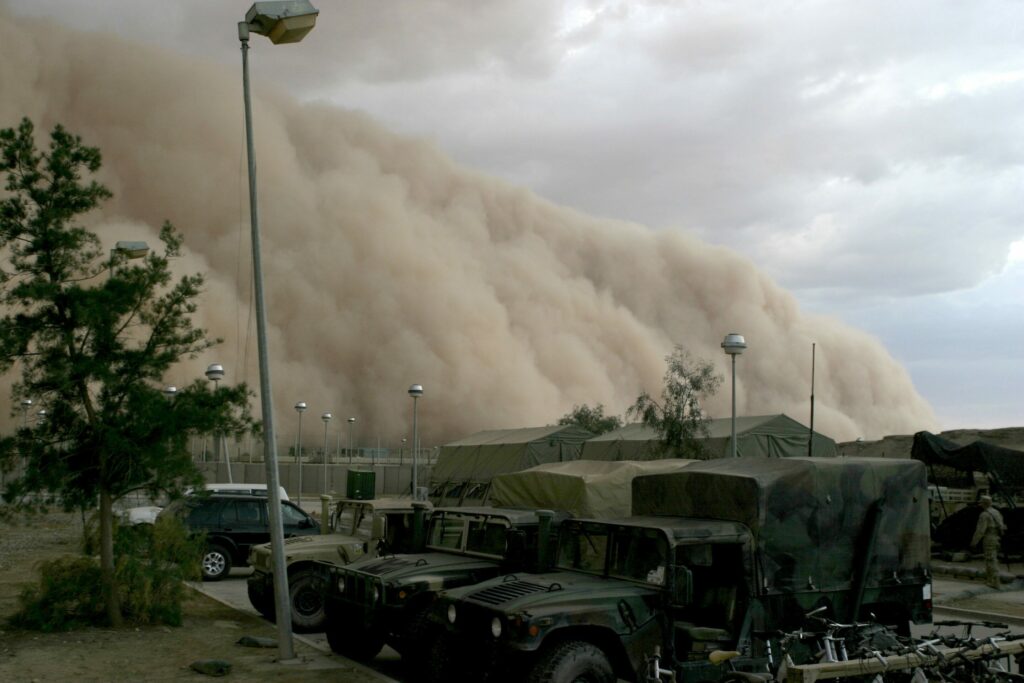More than 1,800 people were treated on Monday for respiratory issues in central and southern Iraq due to a severe sandstorm, according to health officials from several provinces.
In the southern province of Muthana, hospitals treated “more than 700 cases of suffocation,” said Mazen al-Egeili, the director of the local health authority. Hospitals in neighbouring Najaf province received over 250 patients with similar respiratory problems, according to health authorities there.
Additionally, some 322 individuals of all ages suffered from respiratory issues in the Diwaniya area, north of Muthanna, while 174 cases were recorded in Dhi Qar province - northeast of Muthanna - and 361 cases in Basra province in the southeast, local health officials reported.
The storm was caused by surface winds from eastern Saudi Arabia and southwestern Iraq that reduce visibility to less than a kilometre, according to the meteorological services, cited by the state news agency INA.
Despite strong evening winds in Baghdad, the storm’s impact on the capital was expected to be minimal, according to these services.
Sandstorms have worsened both in frequency and intensity in recent years in Iraq, one of the five countries most vulnerable to certain effects of climate change and desertification.
With 39% of the country’s total area affected by desertification, according to the United Nations, authorities recommend measures such as creating windbreak forests to combat the phenomenon.

